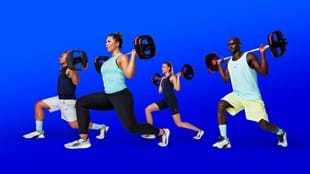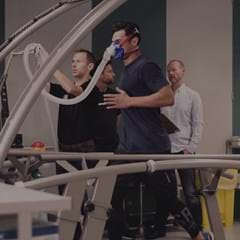As soon as Covid vaccines started rolling out, governments across the planet began thinking outside the box and offering cash incentives, lotteries and gifts to motivate people to get vaccinated. In West Virginia, young people who get the jab are given a US$100 savings bond, and in Detroit, you can get US$50 cash if you drive someone else to get their shot. And in one region in Thailand, you could score a cow. Yes, you read that right! One cow will be given to a vaccinated person every week for the rest of the year.
There’s no formal research proving that incentives increase the uptake of Covid vaccines, but it seems to work. In Thailand, the number of people registering to get the jab jumped from hundreds to thousands as soon as the cow competition kicked in. And research on other vaccines shows that financial incentives increase people’s adherence to a vaccine regime seven-fold.
It's good to know the incentives are working because increasing vaccination rates is critical if we want to enjoy a safe and healthy future on this planet.
But it’s not the only thing we need to work on increasing. Bumping up physical activity rates is an equally important health measure.
The World Health Organization says up to 5 million deaths a year could be averted if the global population was more active. Surely that’s worth incentivizing?
Globally, one in four adults are insufficiently active, posing a 20 to 30 percent increased risk of death compared to people who are active. The World Health Organization says up to 5 million deaths a year could be averted if the global population was more active. Surely that’s worth incentivizing?
Some might argue that the many and varied benefits of exercise should be incentive enough. Surely the physical health benefits, mental benefits and even the financial benefits of regular exercise provide ample motivation to get moving? Do we really need to throw post-workout freebies and cash incentives into the mix?
It all depends on who you're talking to. The masses who already tap into the physical, mental and emotional benefits of exercise regularly don't need any extra incentive to exercise. And those are who are very resistant are unlikely to be swayed by a gimmicky freebie or discount. It is those who are on the fence – they know the benefits of exercise but need to be spurred into action – who will likely respond well to incentivization.
Incentivizing physical activity is not a new concept. For years, private sector employers have been using financial incentives to encourage healthy behaviors. Way back in 2008 studies were concluding that financial incentives, even relatively small incentives, can influence individuals' health-related behaviors.
More recently, researchers identified the benefits of incentivization by using data from 422,643 members of the Vitality Active Rewards program. These members – from the United Kingdom, the United States and South Africa – were awarded ‘Vitality points’ for healthy activities that they could use to redeem things like movie tickets. They could also opt in to buy a smartwatch and fitness tracker at a discounted price spread over time. The monthly repayments varied depending on the amount of physical activity tracked, and if people clocked up enough activity they would earn enough points to avoid paying further costs. The study showed that, though unhealthy individuals are much less likely to take up an incentive of this nature, when they do, it drives a more significant behavior change than seen in more active individuals.
However, you don't need to sign up for an elaborate scheme or use a fancy app to stay motivated. There are thousands of home exercisers and gym-goers who create and maintain good exercise habits by following a workout plan, diarizing their workouts and simply ticking them off once they're done. For many, the sense of achievement can be motivation enough. For others adding a bonus incentive – such as a massage or new item of clothing – can make a consistent workout regime even more compelling.
You can learn some more top tips for finding the motivation to exercise from motivational expert, Rachael Newsham. It’s also worthwhile discovering how chasing your goals alongside like-minded individuals can help set you up for long-term success.








